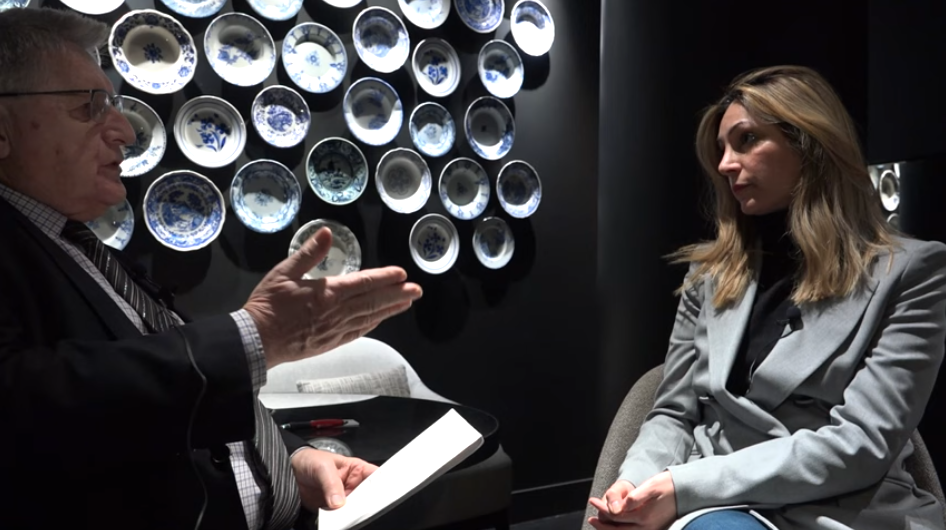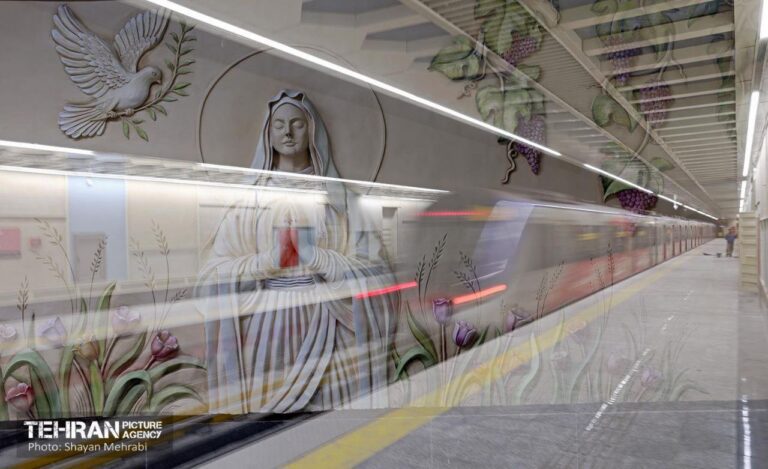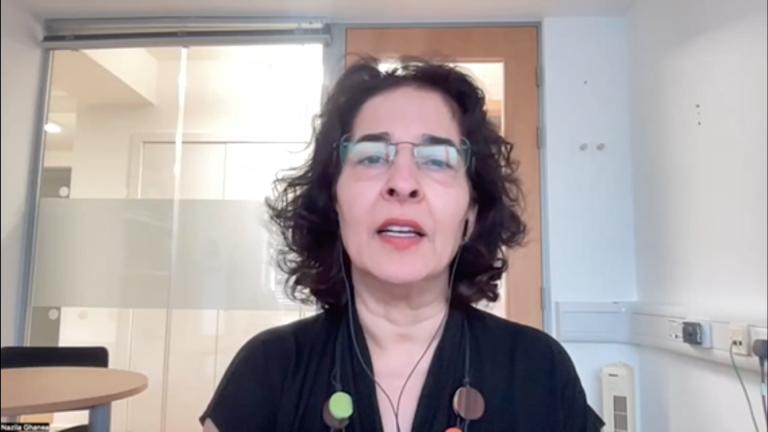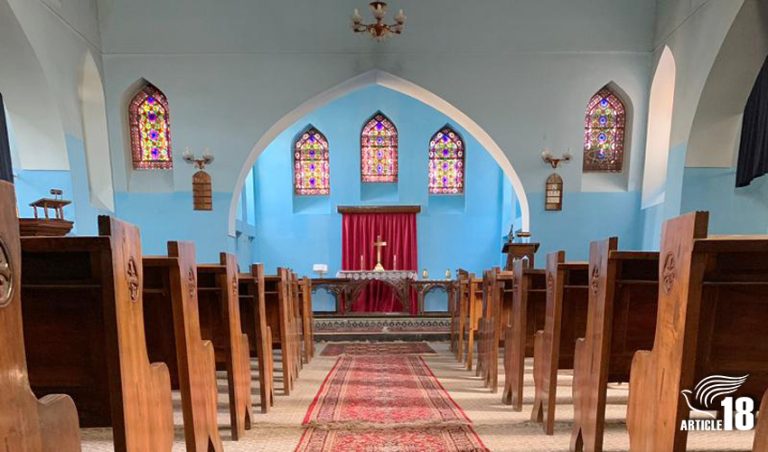This extract of an interview conducted by the director of Human Rights Without Frontiers, Willy Fautré, was first published by the magazine Bitter Winter and is republished here with kind permission.

Iranian-Assyrian Christian Dabrina Bet-Tamraz was forced to flee Tehran in 2010 because of her faith. She is now a pastor in a German-speaking Protestant community in Switzerland, and a tireless campaigner for religious freedom in Iran, having been the voice of the voiceless at the United Nations, in her meeting with the US President, and at American think-tanks. Dabrina’s parents, Pastor Victor Bet-Tamraz and Shamiram Issavi, were sentenced to a combined 15 years in prison. They fled Iran in 2020 when they were summoned to start serving their prison terms, and joined their daughter in Switzerland.
‘What does it mean to be a Christian in Iran?’
“During my life in Tehran we were shadowed all the time by officers of the Ministry of Intelligence and the police. Wherever we went, they would follow our car and take pictures of us. They even followed me when I was alone on the street and sent my picture to my parents to show that they were watching each of us in the family. We lost our privacy. They would call us on a regular basis to check where we were. On several occasions, they broke into our home, just to show we were under surveillance. This is what it meant to be a Christian in Iran. I had got used to that sort of life. It was so normal that when I started living in another country, I was shocked to realise that it was not normal at all. It took me eight years in Switzerland to stop looking back in the mirror of my car and checking all the cars passing by before parking.”
‘Were you arrested when you were living in Iran?’
“When I was 17, I spent three years and a half in England to study theology. I went back home in 2007 and started studying psychology at the university but I was also serving the Church with my parents. I was arrested several times in 2009 when our church was closed by the authorities. I was repeatedly called for interrogations by the police. They wanted me to ‘cooperate’ with them, which meant giving them the names of our members and leaders, the times and places of our private gatherings, the number of people attending but also the activities of pastors in other cities. They wanted me to work for them as their spy [against] my family, our church but also other churches. As I refused to do so, they threatened me with rape, arrest and imprisonment for five years. Finally I was expelled from the university and I thought it was time for me to leave a country where I had no more future.”
‘Article 13 of the Iranian constitution recognises Christians, Jews, and Zoroastrians as protected religious minorities with the right to worship freely and form religious societies, but your picture of religious life in Iran is very different and suggests that religious minorities are severely discriminated against. How can you explain that?’
“Christianity is only partly recognised, and we suffer from harsh limitations in the practice of our faith, our freedom of assembly and worship. Since the 1979 revolution, the regime has imposed a new identity on the Iranian people which is based on people’s religious beliefs. If you are a Shia Muslim, no problem. If you are not a Shia believer, you will face restrictions. As a child, I was discriminated against and stigmatised at school. Christian children were considered ‘unclean’ and were mistreated. In the 1990s, more than eight pastors and church leaders were killed because of their faith. My father was arrested and interrogated on a regular basis. He was asked to ‘cooperate’ with the authorities. As he didn’t, he was discriminated against and threatened.
“My father was arrested in 2014, [and] my brother and my mother in 2016, because of their church activities and for allegedly ‘acting against national security’ and ‘training spies’. My brother is still in Iran with his family. He spent three months in prison, and then six months. He was released in 2020 during the coronavirus epidemic. He is still out of jail right now.”
‘You said Christians endured restrictions to the practice of their faith. Can you give some examples?’
“Iran has signed the Universal Declaration of Human Rights and the International Covenant on Civil and Political Rights. According to these international instruments, all the citizens of Iran should fully enjoy their right to freedom of religion, including the right to share their beliefs and the right to convert. Before Mahmoud Ahmadinejad was president of Iran from 2005 to 2013, we were allowed to have religious services in [Persian], the official language of Iran, and to have religious literature in Persian. When Ahmadinejad became president, we were not allowed any more to conduct services in thePersian language, to have literature or books in Persian. Only Assyrian people could enter the church and only the language of the Assyrians could be used. Muslim converts to Christianity were not recognised as Christians by the authorities, although they are in majority in the Christian community of Iran. We were not allowed to have Iranians and converts in the church. We were not allowed to worship in Persian. Under Ahmadinejad, Protestants were considered terrorists, Zionists, and a threat to national security. Ten years after Ahmadinejad’s rule, Christians like us are still not allowed to share their faith with Iranians in their own language.”
‘Was it easy to get political asylum in Switzerland?’
“I went to Switzerland, thinking that the situation would improve in Iran and I could go back home six months or a year later. After some time, I realised there was no hope and I asked for political asylum. It took me two years to get this status. I had to provide evidence that I was really an Assyrian Christian and that I and my family were persecuted in Iran. After 12 years spent in Europe, it is still my hope and my dream to go back to a free Iran.”
You can watch the full interview below:



0 Comments